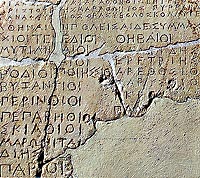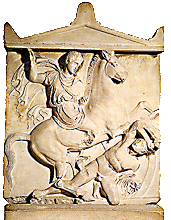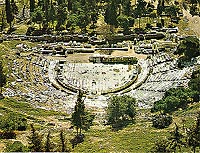 | Although Athens respected the terms of the treaty at first, later, in trying to prevent the consolidation of Lacedaemonian power in central Greece, gathered around her many Greek cities to form the Second Athenian Confederacy. Nevertheless, Athenian arbitrariness and pressure exerted on allied cities, coupled with military failures, aggravated the situation until the allies left the coalition, preparing the ground for the allied war (357-355 B.C.), in which Athens was defeated and the autonomy restored to the cities. The disappointment of some intellectuals with Athenian policy is clear from some contemporary works such as Isocrates’, On Peace and Xenophon’s, Poroi. |





